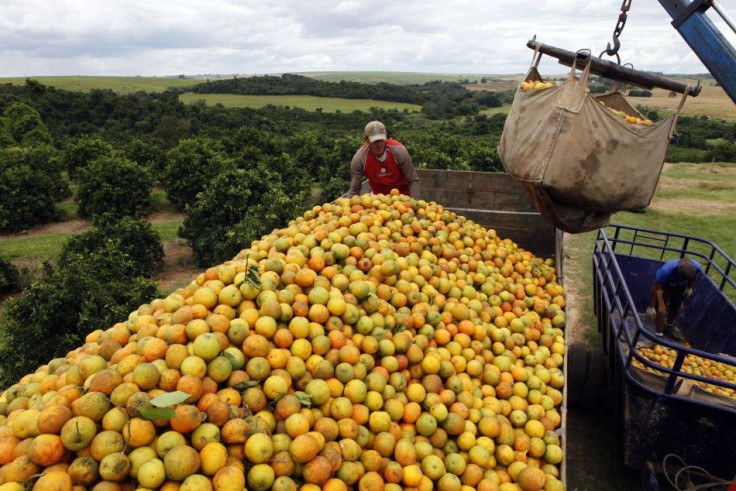Brazil Replaces UK as World's 6th Biggest Economy

Despite a slowing growth rate in 2011, Brazil's economy overtook the United Kingdom to become the sixth biggest in the world.
Brazil's economy grew by 2.7 percent last year, pushing its GDP up to $2.52 trillion. With a growth rate of 0.8 percent, the UK's economic value rose from $2.25 to 2.48 trillion between 2010 and 2011, which was not enough to stay in front of South America's largest and most robust economy.
It is not important to be the world's sixth-biggest economy, but to be among the most dynamic economies, and with sustainable growth, Brazil's Finance Minister, Guido Mantega, said on Tuesday.
About one quarter of Brazil's GDP and one- third of its total exports come from agriculture and food processing. In the past two decades, the country became the world's leading exporter of sugar cane, coffee and tropical fruits, and it now also boasts the biggest cattle market of any nation.
The Guardian newspaper of the UK was quick to point out that per capita income in Brazil still lags behind the UK.
The per capita income of Brazilians remains less than a third of that enjoyed in the UK at $11,000 (£7,000) per head, but the situation is improving all the time while western economies largely stagnate, the paper reported.
Additionally, Brazil's growth rate slowed significantly last year. In 2010, Brazil's economy grew by 7.5 percent, but a year later it dipped down toward the bottom of all South American countries. In 2011, Argentina had an average GDP growth rate of 8 percent, while Chile's economy grew by 6.5 percent, according to the CIA World Fact Book.
Brazil also lagged behind the average Latin America GDP growth rate of 4.6 percent, according to the International Monetary Fund.
At sixth, Brazil's economy sits directly above Britain and behind France. Germany, Japan, China and the U.S. round out the rest of the top five.
Economists estimate that Brazil's economic growth will pick back up over the next few years, although not as rapidly as expected by the government. According to the Financial Times, Brazil's GDP should rise by 3.3 percent in 2012 and by 4.15 percent in 2013.
© Copyright IBTimes 2025. All rights reserved.





















